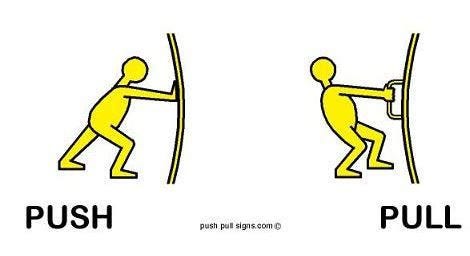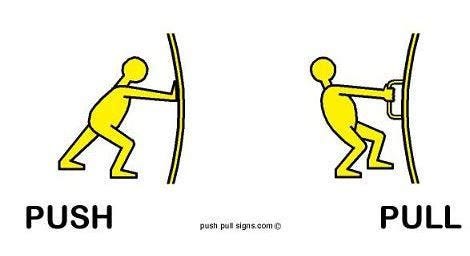This article continues our project explaining each line of Sun Tzu’s work. The English and Chinese are from my award-winning translation, The Art of War and The Ancient Chinese Revealed. Start here for the book’s opening lines.
The lines discussed in this article finish the Fourth Section of Chapter 5 of The Art of War. This chapter explains how strategic Momentum is created by the interruption of direct actions with surprises. We use strategic surprise when we find ourselves at a competitive disadvantage. This Fourth Section focuses on how all these surprises create the chaos, of competition. The lines discussed here form a single stanza that explains how we use our positions to pull or push others into moves.
Positions exist in the objective world, but they also exist in the subjective reality of how we see situations in our minds. Strategies are methods for affecting the decisions of others, encouraging them to support us and discouraging them from opposing us. In this process, we use proven methods to create initial impressions, but we use unexpected moves or surprise to get attention and cause others to react (see this article).
Moving Others
Our opponents or “enemies” are all those whose minds we want to change. They can be those to whom we are being compared or those who are judging us. The first line of this stanza is about how our changes in position also affect the positions of those around us.
(In the quotations below, we summarize each Chinese character as a single English word shown in < > brackets. A sentence from my English translation follows.)
<Make> <good> <move> <enemy> <is>
You must force the enemy to move to your advantage.
Strategically, what we do matters because of how others react to us. Moves that create no reaction are expected. Surprise gets a reaction. A good move is one that encourages others to adapt to it. A poor move is one that everyone can safely ignore.
In many marketing battles, one competitor’s move often forces their main opponent to react. Often, these forced moves are a mistake. The Pepsi Taste Challenge advertising campaign pulled Coke into bringing out New Coke, a sweeter drink, more like Pepsi. It was a costly mistake. On the other hand, Avis’s marketing campaign of, “We’re number two; we try harder," was effective in promoting Avis, but it didn’t move number one, Hertz, to change their positioning message.
Our ability to push or pull others is constrained by our current positions.
<Form> <it>
Use your position.
We must use our form, that is, our positions, to “reform” the situation. Our positions have strengths and weaknesses. Our strengths can push others. Our weaknesses can pull them. We use surprise to move others when we are unable to move them using direct methods, when we are not strong enough to win otherwise.
We use the moves of others to create surprises. When others are moving against us, we can more easily pull them into a surprise. When they are moving away from us, it is easier for us to push them into the unexpected. We can use our existing positions to force different types of moves from others.
Tricks to Move Others
All surprises are “tricks” in a sense. We trick people’s expectations.
The rest of this article is reserved for our paid subscribers. Become a free subscriber for weekly previews and one monthly free article. To get all weekly articles become a paid subscriber.
Keep reading with a 7-day free trial
Subscribe to Practical Strategy Based on Sun Tzu's Art of War to keep reading this post and get 7 days of free access to the full post archives.





